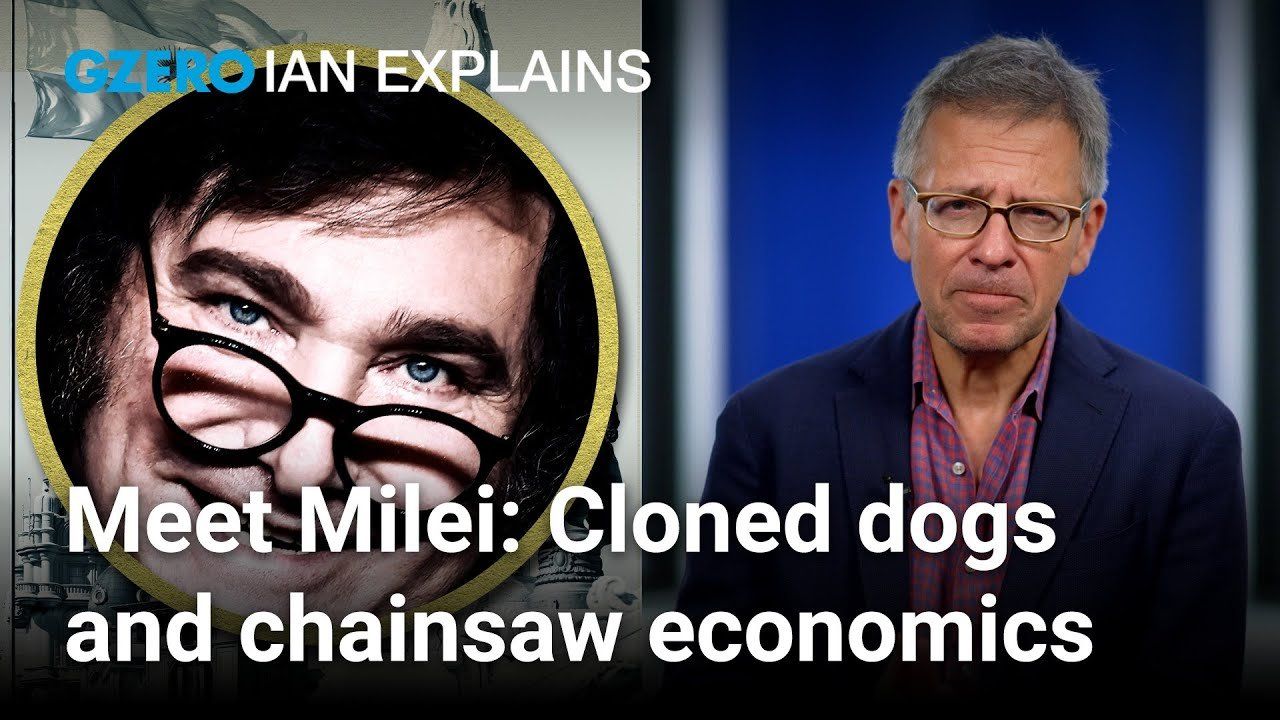Ian Explains: What's so radical about Argentina's new president (besides his cloned dogs)?

Argentina's new libertarian president, Javier Milei, is not like other Argentine presidents. He's not like anyone else, for that matter. But it's not his penchant for dressing up as a superhero and singing about fiscal policy that sets him apart. Nor is it his cloned dogs or bombastic approach to politics. Six months into his first year in office, it's his radical plan to save Argentina's economy that's truly radical. And here's the thing...so far it seems to be working.
Despite living in one of the largest and most resource-rich nations in Latin America, the average Argentine has endured one economic calamity after another. Milei has vowed to put an end to what he refers to as "100 years of decadence. But can he pull it off?
The self-proclaimed tantric sex guru with a mop of unruly black hair that he claims the invisible hand of the free market keeps in place campaigned for president last year by promising to take a chainsaw literally to government spending and to eliminate Argentina's Central Bank. He also derided climate change as a socialist conspiracy. He called the Argentine compatriot Pope Francis a "leftist S.O.B." He's known universally in Argentina as El Loco or the madman. And then back in November, he won the election in a landslide.
When he won, many experts expected that Milei's self-styled, anarcho-capitalism would be the death knell for an economy already in free fall. But after taking office in December, Argentina's 300% annual inflation slowed for five months in a row. His government did this by turning the 5.5% budget deficit that it inherited into the country's first surplus in over a decade. And all without destabilizing their currency and their financial markets.
But while Milei's shock therapy has been successful at balancing the budget and slowing inflation, the fiscal and monetary austerity has caused a deep recession, with economic activity shrinking almost 10% year-on-year back in March, unemployment rising, real salaries in Argentina hitting their lowest points since 2003. Mass protests against budget cuts to public universities back in June drew more than 400,000 people to the streets.
Can Milei save Argentina's economy before he destroys it?
Watch Ian's exclusive interview with Javier Milei on the full episode of GZERO World with Ian Bremmer, the award-winning weekly global affairs series, airing nationwide on US public television stations (check local listings).
New digital episodes of GZERO World are released every Monday on YouTube. Don''t miss an episode: Subscribe to GZERO's YouTube channel and turn on notifications (🔔).